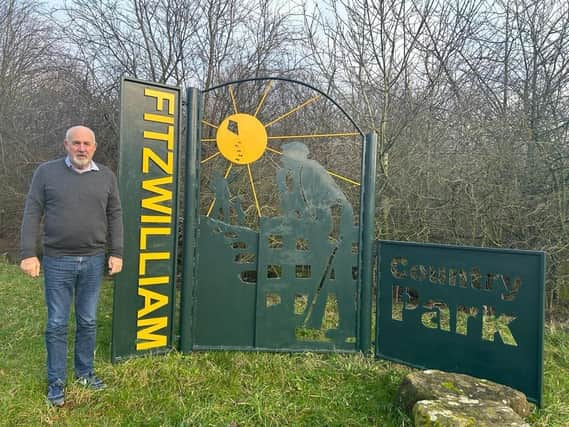Jon Trickett MP: Miners’ strike left an indelible mark


Jon Trickett MP writes: When Thatcher’s agents in the National Coal Board announced 20 pit closures in March 1984, they claimed this was the limit of their ambitions. Mining communities were not fooled.
The NUM told the country that the Tories planned to destroy the whole industry. They warned the wider labour movement that if the Tories succeeded then workers in other industries would be next.
Advertisement
Hide AdAdvertisement
Hide AdDeclassified Cabinet papers that show the Thatcher government secretly planned to close 75 collieries all along. Subsequently, Thatcher launched further attacks on trade union rights and working communities like the printers in Wapping.
Thatcher lied. The NUM was proved absolutely right.
Over 165,000 miners participated in the strike, whilst hundreds of thousands of their family members loyally supported them until the end. It took unparalleled levels of state surveillance and violence to eventually defeat the strike.
I will never forget the ghastly scenes at Orgreave where the heads of working men were smashed-in by out of control police officers. We know that similar incidents of violence took place across the country, including here in Hemsworth. I support calls for an inquiry into the policing of the strike. How can it be that the full force of the British state was brought to bear against its own people? This has serious ramifications for our democracy.
Some might say we should shut up about the strike and move on. I don’t agree. The legacy of the strike still casts a dark shadow over our area and the whole country. The dispute represented an assault on the whole British labour movement and the post-war consensus. After WW2 and the Attlee government, our country was moving in the direction of greater social justice and workers’ rights. Since Thatcher’s war on the miners, our country has seen growing inequality and fewer rights for workers.
Advertisement
Hide AdAdvertisement
Hide AdCoalfield areas in particular have been systematically held back by successive governments. Underinvestment over four decades has led to economic decline. There has been no serious attempt to transition our area to new industries with good jobs. Instead we’ve seen an influx of low paid, insecure jobs. Social mobility has ground to a halt and poverty is on the rise. We’re still waiting for the mineworkers pension scheme to be restored.
And yet the spirit of our communities has never been broken. The same values of solidarity which held the strike together throughout that long year can still be seen today. Take a look at the support at local picket lines, or the volunteers at the food and clothes banks.
The best way to mark this anniversary is to fight for a new settlement for coalfield communities. This means justice for those who suffered violence at Orgreave and elsewhere, the restoration of mineworkers’ pensions, large-scale public investment in coalfield areas and stronger rights for workers.